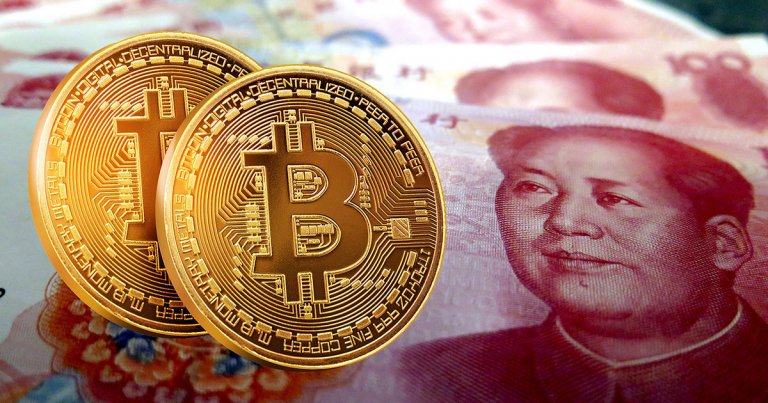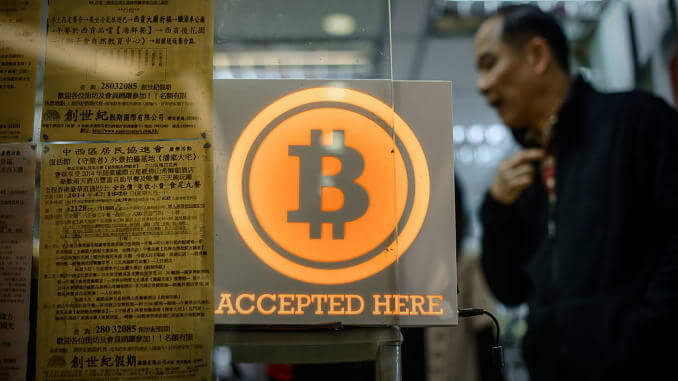 China: Banks and Alipay won’t shut Bitcoin accounts, 70 percent of firms see blockchain as an economic boost
China: Banks and Alipay won’t shut Bitcoin accounts, 70 percent of firms see blockchain as an economic boost China: Banks and Alipay won’t shut Bitcoin accounts, 70 percent of firms see blockchain as an economic boost

Image by RABAUZ from Pixabay
Reports on China shutting down bank accounts for individual Bitcoin traders and OTC firms are unfounded and untrue, a local investigation found this week.
Dispelling FUD
China Times said Wednesday the country’s national and central banks were not closing any Bitcoin or cryptocurrency linked accounts, despite widespread media reports of the contrary.
Private firms like Alipay and WeChat are, similarly, not censoring any user transacting in cryptocurrencies. This includes both small-scale activity and larger fund transfers.
The caveat? All transactions must arise from a “legal source,” while the individuals must have a “legal identification” present. Both criteria were confirmed by local reporters who asked bank and payment firms named in previous reports to have shut down Bitcoin-linked accounts.

At the time of writing, the China Merchants Bank, Bank of China, Agricultural Bank of China, Construction Bank and Industrial and Commercial Bank are all allowing cryptocurrency transactions.
Loosely translated from Mandarin, the general consensus was as follows:
“As long as the operation is legal, the channel is legal, the virtual currency source is legal, the page supports bank card service, bank card no user’s funds will be voluntarily frozen unless it involves illegally related cases such as money laundering and fraud.”
Approved accounts have no risk
CryptoSlate checked out local Chinese exchanges for any relevant information on the matter. At the time of writing, transfers from Alipay, WeChat, and local bank accounts are enabled as an option, and no warning or announcement seems to pop up.
Last year, Alipay seemed to immediately block payments originating from a Bitcoin or cryptocurrency exchange. Punishments ranged from a small penalty to permanently blocking user accounts.
A tweet from October 2019 said:
If any transactions are identified as being related to bitcoin or other virtual currencies, @Alipay immediately stops the relevant payment services.
— Alipay (@Alipay) October 10, 2019
However, Alipay management told China Times that approved accounts will see no freezing of funds, and no registered users will be affected.
Despite the relief, local industry observers state China’s stance towards cryptocurrencies remains critical and unfriendly, while local firms are using international registrations and loopholes to continue operations.
300 firms “bullish” on blockchain
Meanwhile, blockchain technology remains at the forefront of Chinese R&D. In a survey concluded last week, over 300 local firms, including those from technology, financial, and supply chain sectors, said they were “bullish” on the protocol.
Beijing’s Xinhua Net revealed Chinese businesses believe the implementation of blockchain technology can help with longer-term economic recovery, especially as the COVID-19-environment has led to the disruption of most supply chains and financial processes.
Blockchain technology, the researchers found, is widely considered as the “most effective” to build medical supply chains and ensure data verifiability across organizations.
China’s speeding up blockchain efforts across the country. The Southwestern island of Hainan has been termed a “blockchain pilot zone” by the ruling party and is earmarked to see massive investments, developments, and entrepreneurial infrastructure to support local blockchain development.
Ambitious video to make blockchain hub in Hainan. It looks too epic, but gald to see progress from goverment side. pic.twitter.com/yN7Mzl8jXW
— Ryan kim (@ryankim_hashed) December 5, 2019





 CryptoQuant
CryptoQuant 
 CoinGlass
CoinGlass 













































































